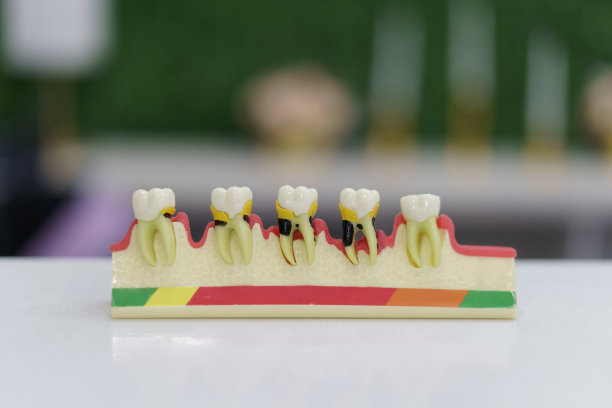Exploring the Top Countries Renowned for Their Superior Dental Care and Effective Solutions to Oral Health Issues
original:health91192025-04-16 11:39:33
Summary: Dental health is a crucial aspect of overall wellbeing, and certain countries stand out for their exceptional dental care systems that successfully address a wide range of oral health issues.
Summary: Dental health is a crucial aspect of overall wellbeing, and certain countries stand out for their exceptional dental care systems that successfully address a wide range of oral health issues. This article explores four primary areas: the technological advancements in dental care, the quality of dental education, the accessibility of services, and the prevalence of preventive care practices. By examining leading countries known for their superior dental care, such as Sweden, Switzerland, Japan, and the United States, we can gain insights into effective solutions that promote oral health and hygiene, ensuring healthier smiles for all.
Technological Advancements in Dental Care

One significant factor contributing to superior dental care in leading countries is their commitment to technological advancements. Countries like Sweden and Switzerland consistently invest in cutting-edge dental equipment and procedures. Innovations such as laser dentistry, digital X-rays, and 3D printing allow for more accurate diagnoses and more efficient treatments. These technologies not only enhance patient comfort but also improve the overall outcomes of dental procedures.
Moreover, the integration of telehealth into dental practices has revolutionized the way patients receive consultations and follow-up care. Patients can access expert advice remotely, which is especially beneficial for those living in rural or underserved areas. This shift to digital solutions has made dental care more accessible and has encouraged patients to seek preventive care, reducing the incidence of complex dental issues.
Furthermore, the use of artificial intelligence in dental practice management has streamlined processes and improved service delivery. AI can help in scheduling appointments, managing patient records, and even assisting in diagnosis through image recognition systems. This seamless integration of technology results in more effective care and higher patient satisfaction rates.
Quality of Dental Education and Training
The exceptional quality of dental education and training programs in countries renowned for their dental care is another critical aspect to consider. In nations like Japan and the United States, dental schools emphasize rigorous academic standards and hands-on clinical experience. This high level of education ensures that dental professionals are well-equipped to provide top-tier care.
Many of these countries also promote ongoing education for existing dental practitioners. Workshops, seminars, and advanced training courses enable dentists to stay up-to-date with the latest techniques and technologies, ensuring their skills remain relevant in a changing field. This commitment to continuous improvement enhances the quality of care provided to patients.
Moreover, some countries offer specialized training in various areas of dentistry, such as orthodontics, periodontics, and restorative dentistry. Such specialization leads to more comprehensive and tailored health care solutions that meet the specific needs of patients, further contributing to better oral health outcomes.
Accessibility of Dental Services
Accessibility to dental services is paramount in ensuring oral health, and leading countries have implemented various strategies to enhance this aspect. For instance, Sweden has a comprehensive public dental health system that covers a broad demographic, particularly focusing on youth. This commitment to accessibility ensures that children receive preventive care and maintain good oral hygiene habits as they grow.
In addition to public health initiatives, countries like Canada emphasize affordable dental care through community health centers and mobile dental clinics. These efforts are designed to reach underprivileged and marginalized populations, ensuring that access to dental services is not limited by socio-economic status.
Furthermore, innovative health policies in countries known for superior dental care often include subsidized treatments and insurance coverage for various dental procedures. By reducing the financial burden on patients, these countries encourage regular dental visits, improving overall oral health among the population.
Prevalence of Preventive Care Practices
The emphasis on preventive care practices is a cornerstone of successful dental health systems in top countries. For example, Japan promotes regular dental check-ups and cleanings, educating citizens on the importance of maintaining oral hygiene from an early age. This proactive approach greatly decreases the need for more invasive treatments later in life.
Additionally, comprehensive public health campaigns focus on promoting good nutrition and the harmful effects of tobacco. These initiatives serve to create a culture of health where individuals actively participate in their dental care and prioritize preventive measures to avoid complications in oral health.
Countries renowned for their superior dental care also readily incorporate the use of dental sealants and fluoride treatments in public health programs, especially for children. These preventive measures have proven effective in reducing the prevalence of cavities and other dental issues, leading to better overall dental health and reduced healthcare costs in the long run.

Summary:
Overall, the exploration of top countries known for their superior dental care highlights several key factors that contribute to effective oral health solutions. Technological advancements, high-quality education, accessibility of services, and a strong focus on preventive care practices all play crucial roles in fostering healthy dental practices. By adopting these successful approaches, other nations can enhance their dental care systems and promote better oral health outcomes for their populations.
This article is published by HEALTH9119 Medical Health Network https://www.health9199.com